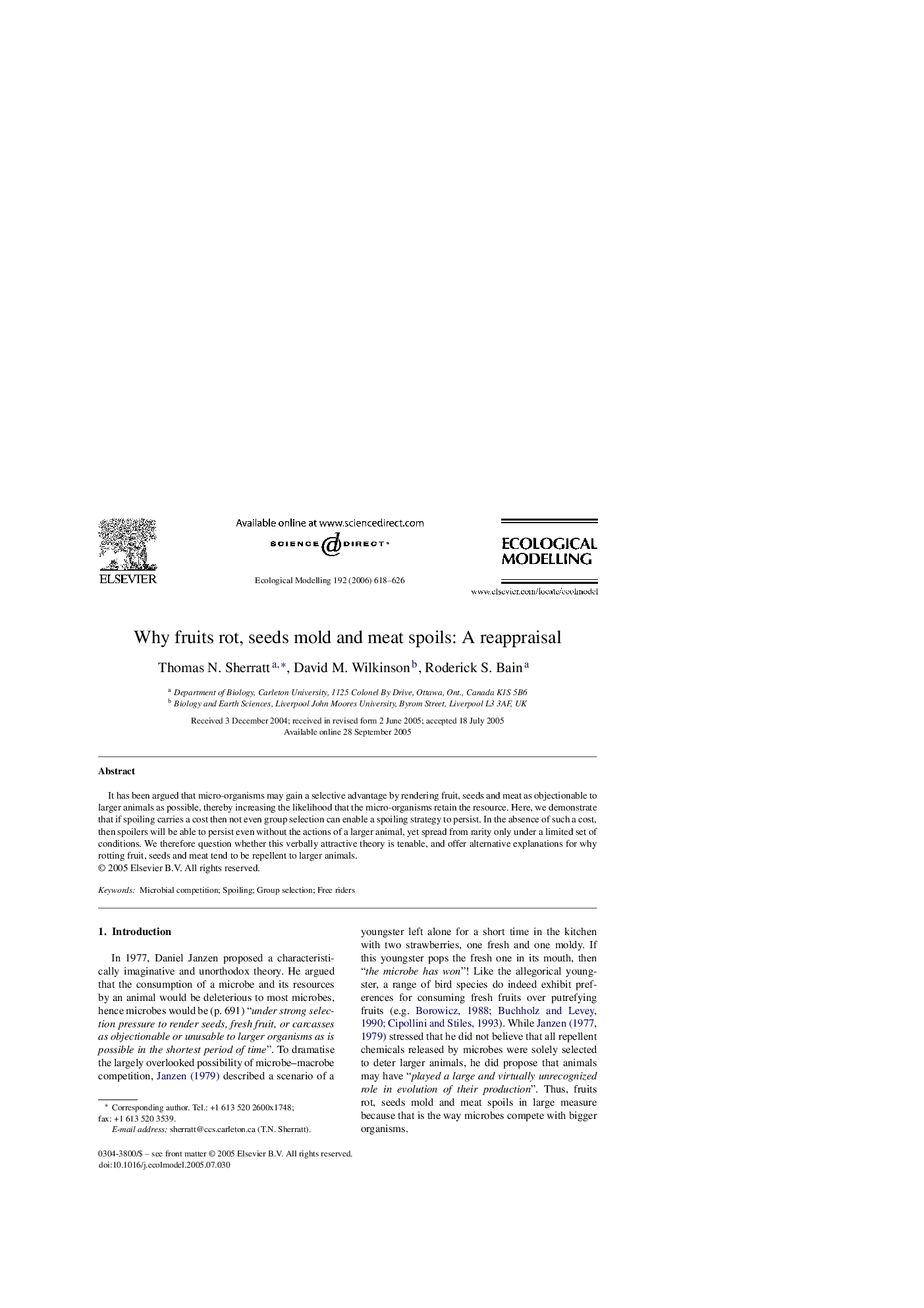| Article ID | Journal | Published Year | Pages | File Type |
|---|---|---|---|---|
| 4379298 | Ecological Modelling | 2006 | 9 Pages |
Abstract
It has been argued that micro-organisms may gain a selective advantage by rendering fruit, seeds and meat as objectionable to larger animals as possible, thereby increasing the likelihood that the micro-organisms retain the resource. Here, we demonstrate that if spoiling carries a cost then not even group selection can enable a spoiling strategy to persist. In the absence of such a cost, then spoilers will be able to persist even without the actions of a larger animal, yet spread from rarity only under a limited set of conditions. We therefore question whether this verbally attractive theory is tenable, and offer alternative explanations for why rotting fruit, seeds and meat tend to be repellent to larger animals.
Related Topics
Life Sciences
Agricultural and Biological Sciences
Ecology, Evolution, Behavior and Systematics
Authors
Thomas N. Sherratt, David M. Wilkinson, Roderick S. Bain,
